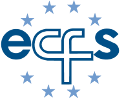Psychological Treatment Modalities for Depression and Anxiety in People with Cystic Fibrosis
The aims of the ECFS Mental Health Working Group include the implications of mental health screening, including treatment options after screening, how to help an individual with cystic fibrosis develop resilience in the wake of signs of depression or anxiety, and what interventions may best help treat depression or anxiety. To address this need, the topic of the ECFS 2020 (Lyon) Tomorrow’s Lounge is “We are Screening...Now What?: Different treatment modalities in CF mental health.
As a guide for mental health care providers, please find below brief descriptions of treatment modalities that experienced CF practitioners have found helpful for working with children, parents and/or adults living with CF in various countries. Thank you to the mental health working group who contributed to creating this resource with a special thanks to: Dr. CJ Bathgate, USA; Klara Benesova, Czech Republic; Dr. Stephanie Filigno, USA; Dr. Alexandra Klein Rafaeli, Israel; and Brian Nickerson, USA.
Acceptance and Commitment Therapy
Body-oriented psychotherapy (BOP)
Cognitive behavioral therapy
Interpersonal Psychotherapy (IPT)
Dialectical Behavioral Therapy (DBT)
Existential therapy
Mindfulness-based cognitive therapy (MBCT)
Motivational Interviewing
Parent Management Training
Patient/Client-Centered Approach
Play Psychotherapy
Psychodynamic (psychoanalytic) psychotherapy (PAPT)
Relaxation
Systemic Family Therapy
Additional Screening Tools
The International Mental Health Guidelines Committee (IMHGC) in Cystic Fibrosis set up consensus statements for screening and treating depression and anxiety in individuals with CF and their caregivers. These statements are advocated in the published guidelines. The guidelines were informed by feedback from the CF clinical, parent and patient communities in Europe and the US. They recommend annual anxiety and depression screening for adults and adolescents (12+ years), and at least one primary caregiver of children under 18 years.If resources are available, annual interview assessment for all participants would be the ideal. This is not possible in many centers but the screening tools are easy to administer, and providing referral pathways are available. Therefore they can be valuable where time is limited. The screening tools recommended by the ICMH, the Patient Health Questionnaire 9 (PHQ-9) for symptoms of depression and the Generalized Anxiety Disorder Scale (GAD-7) for anxiety have been shown to be suitable in general populations. The Mental Health Guidelines provide a valuable first step in recognizing, addressing and improving the mental health of CF families.

Next steps 2019-2022:
1) The ECFS Mental Health Working Group is focusing more on positive psychology and the strengths of CF-patients and caregivers which may reduce the burden of CF. Therefore, resilience is one of the topics which should be taken into account when screening for psychological distress.
2) Screening of psychosocial problems in younger kids with CF < 12 yrs. and family functioning may prevent adolescents from anxiety and depression, since psychological interventions can start at earlier stage.
3) To gain more insight into specific CF-related complaints, since they can be associated with psychological distress.
Hereunder you will find a list of short screening instruments and current research projects in CF:
Ad 1) Resilience: Brief Resilience Scale (BRS)
Brief Resilience Scale German Validation
BRS abstract Weldon et al ECFS 2019
Ad 2)
A. Screening younger children < 12 yrs.: access to SDQ
B. Family functioning: children with CF, their siblings and caregivers: PAT-CF (publication Filigno, 2019)
Ad 3) CF-related complaints: Gastrointestinal symptom tracker→ GI symptom tracker Quittner et al and Graziano
Note: Are you currently involved in one of these topics? Please send an update to the MHWG-research group coordinator Marieke Verkleij, PhD,
E-mail: m.verkleij@amsterdamumc.nl
